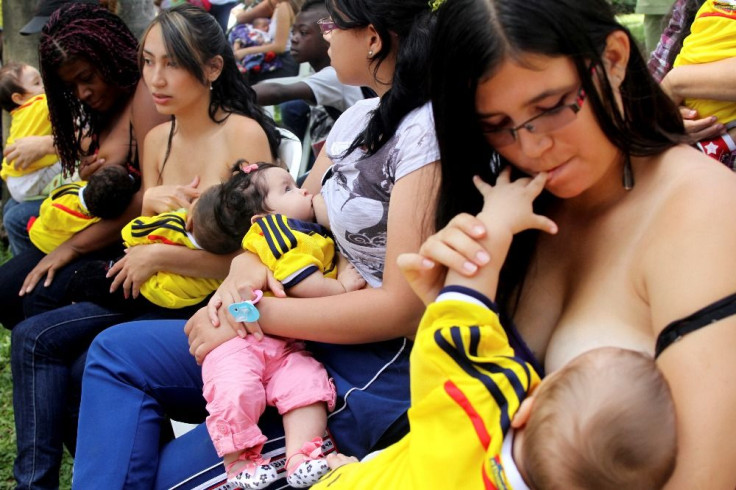Breastfeeding Campaigns Put Pressure On Bottlefeeding Moms, Survey Says

Trending selfies of breastfeeding moms have created an awkward atmosphere for moms who choose to bottle-feed, warned campaigners. According to research, mothers who don’t and can’t breastfeed feel that they are being judged by mothers who can.
A recent survey revealed that 70 percent who bottle-feed say that they have experienced being judged negatively, while 41 percent consider the inability to breastfeed as failure of being a mom, as reported in Mirror. Reports also indicate that the recent survey also showed nearly a fifth of the moms who decide to bottle feed have been trolled via social media and 16 percent have endured harsh comments.
The pressure on breastfeeding—also termed as “bressure” by Netmums co-founder Siobahn Freegard—came after selfies of breastfeeding moms, or “brelfies,” have gone viral on social media. The craze on brelfies included supermodels and pop stars like Gwen Stefani posting snapshots of them breastfeeding their babies.
The brelfie was a move aimed at normalising breastfeeding in public, but it has fuelled criticisms instead. According to Freegard, mothers who don’t and can’t breastfeed usually gets criticised and made to feel inferior. "Most mothers desperately want to breastfeed - but not all can. Putting new mums under 'bressure' benefits no one and may even be causing many to fail,” she said.
The survey commissioned by Channel Mum found that more than half of the 2,000 respondents agree that the breastfeeding campaign has gone too far and has put on pressure on new mothers. Freegard said that feeding a new-born takes on different approaches and society should accept that a mother’s choice on how to feed is based on what’s best for her and the baby and there is no need on putting pressure.
The World Health Organisation recommends that babies should be exclusively breastfed until they are at least six months of age. While most moms want to breastfeed their child, not all of them can. “What should be a personal choice is being turned into a political issue with mums feeling judged at every turn,” Freegard said.
To report problems or leave feedback on this article, email: wendylemeric@gmail.com.





















